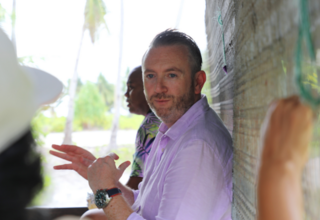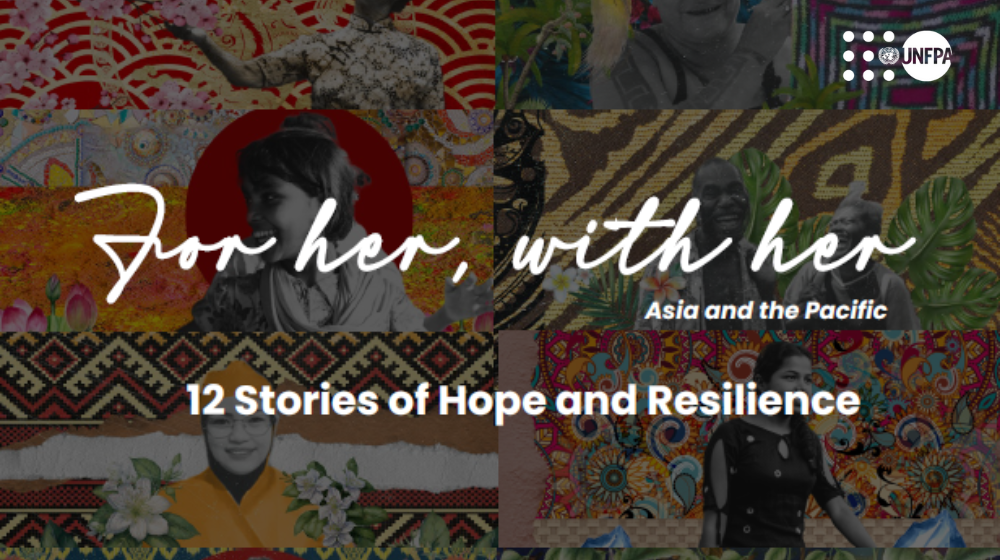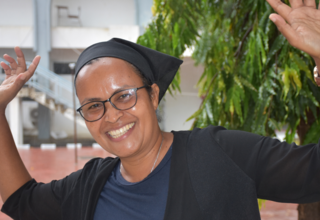You are here
“We might be on the cusp of something that can actually work”

“We might be on the cusp of something that can actually work”
Avelina Rokoduru is the Director of the Pacific Sexual and Reproductive Health Research Centre, the research arm of the College of Medicine, Nursing and Health Sciences of Fiji National University. During the pandemic she worked with UNFPA and partners to develop a course called 'Veilomani', which is a Fijian word for loving one another. The course was a forum for health professionals to share experiences of handling cases of gender-based violence.
For decades, Avelina has been part of a movement of activists, health workers and researchers who have been working to change the narrative around gender-based violence in the Pacific. “We are looking at the causes of gender-based violence in our research,” she says.
Avelina explains that she and her colleagues at the Pacific Sexual and Reproductive Health Research Centre are using a clinical model of services and are trying to adapt it to the health needs of survivors. She reports that they have been able to distil a decade of academic studies on gender-based violence into a few practical principles. “We are working on ways to strengthen referral systems,” she says. “What informs the referral systems at the moment? How do we influence the attitudes and the practices of our health-care workers so that they pay closer attention to the needs of survivors?”
When COVID-19 hit, Avelina was forced to completely rethink how she and her colleagues worked. She needed to scale up the capacity of Pacific health workers to cope with the surge in gender-based violence.
“The mental health and gender-based violence training that we are doing for health-care workers, this is the first of its kind.”
“The mental health and gender-based violence training that we are doing for health-care workers,” she says, “this is the first of its kind.”
Avelina has found that necessity is sometimes the mother of invention. The restrictions of COVID-19 have led to collaboration and partnerships with communities and building the capacity of front-line health workers through the provision of virtual training. “This training is being offered through a virtual platform and it is reaching health-care workers who are receiving gender-based violence or mental health training where they work, out there in the region,” says Avelina.
As a result of the training they received, 32 participants delivered tele-health services for the first time. “This is a turning point,” she says. “We might be on the cusp of something that can actually work.”
Avelina explains that the goal is to assist health-care workers to address gender-based violence by increasing their capacity to provide mental health treatment and support. Such treatment is intended not only to help the survivors but also to support the mental health and self-care of case workers who have to manage stressful experiences every day.
“With COVID-19, the whole region had to step up and adapt to the restrictions it brought about. We have to be smart with digital technology.”
“With COVID-19, the whole region had to step up and adapt to the restrictions it brought about. We have to be smart with digital technology.”
She says that the virtual means of delivery and the design of the sessions created a new channel to strengthen the network of health-care workers in the region. What started with a modest goal of 20 health professionals attending the course has exceeded Avelina’s wildest dreams; 138 people registered, 81 attended at least one session, and there was an average of 42 people in each session. Participants came from nine countries: the Cook Islands, Fiji, Solomon Islands, Cook Islands, Papua New Guinea, Samoa, Solomon Islands, Tonga, Tuvalu and Vanuatu.
The unique design of the program assumed a baseline level of capacity and experience and used the opportunity of the weekly sessions to build and sharpen participants’ tools for responding to and preventing violence. The sessions, critically, also provided a space for a safe and guided conversation, enabling in-depth discussions of direct experiences of managing cases.
“In those exchanges, I saw us building capacity,” Avelina says. “We were telling them, ‘There is this document that you can use.’ The resources and tools were then sent immediately to enable active use and engagement. We were listening and responding to their needs.”
“In those exchanges, I saw us building capacity.”
She found that the students asked all kinds of questions that prompted practical discussions. “How do you handle somebody who is 17 years old and coming to you to discuss sexual violence that he or she is experiencing at home?” Avelina says, relaying a recent question asked on the course.
Managing the discussions were a group of specialist technical experts from UNFPA, Fiji National University and the Postgraduate Overseas Specialist Training Program run by St Vincent’s Hospital, Melbourne, and the University of Melbourne. They provided real-time support and guidance to the health workers, who shared personal experiences and expertise from across the region.
Avelina says that the teamwork among the instructors helped to create a rich learning environment. “While some of us were presenting PowerPoint slides, there were others who were manning the chats and then others who were looking up documents to send to the health-care workers.”
She reports that a common theme in their discussions was mental health and gender-based violence. The participants had rich exchanges, and Avelina could see connections being formed between professionals in different countries. She says that these bonds will be another lasting benefit of the course and could help to build a pan-Pacific gender-based violence network.
Avelina says that the course curriculum was designed based on the studies that she and her colleagues had conducted on gender-based violence and sexual reproductive health at Fiji National University. For her, it has been inspiring to share her experiences, and she is excited about keeping up the momentum.
“I would be thrilled to have the opportunity to scale this program up and integrate it into standard curriculums on continuing education programs,” she says, “learning from my experience and building on, even strengthening, this training.” The key, she says, will be to nourish this nascent network of Pacific health professionals by continuing to build capacity and bring new people into the discussion.
“How do we deal with each other’s differences? How do we deal with divergence? How do we deal with our personal biases and our communal biases?”
Avelina points out that the pandemic has changed many aspects of our lives and given rise to a profound discussion about society. She says that COVID-19 has really put a spotlight on relationships and social relations. “How do we deal with each other’s differences?” she asks. “How do we deal with divergence? How do we deal with our personal biases and our communal biases?”
Avelina believes that these questions are important in challenging norms that perpetuate or result in tolerance of violence. “For years we have continued to sweep all of these questions about social relations under the carpet,” she says. “Those doors are finally being opened.”
For Avelina, the pandemic has offered a chance to reflect and improve on social relations so that the root causes of violence can be addressed. “With COVID-19 and the increase in gender-based violence, we have a chance to step back and to consider how far we have come with gender issues,” she says. “We can reflect on distributions of power and traditional gender roles that have gone unexamined. Now the question becomes, ‘How we can work our way forward from here?’"
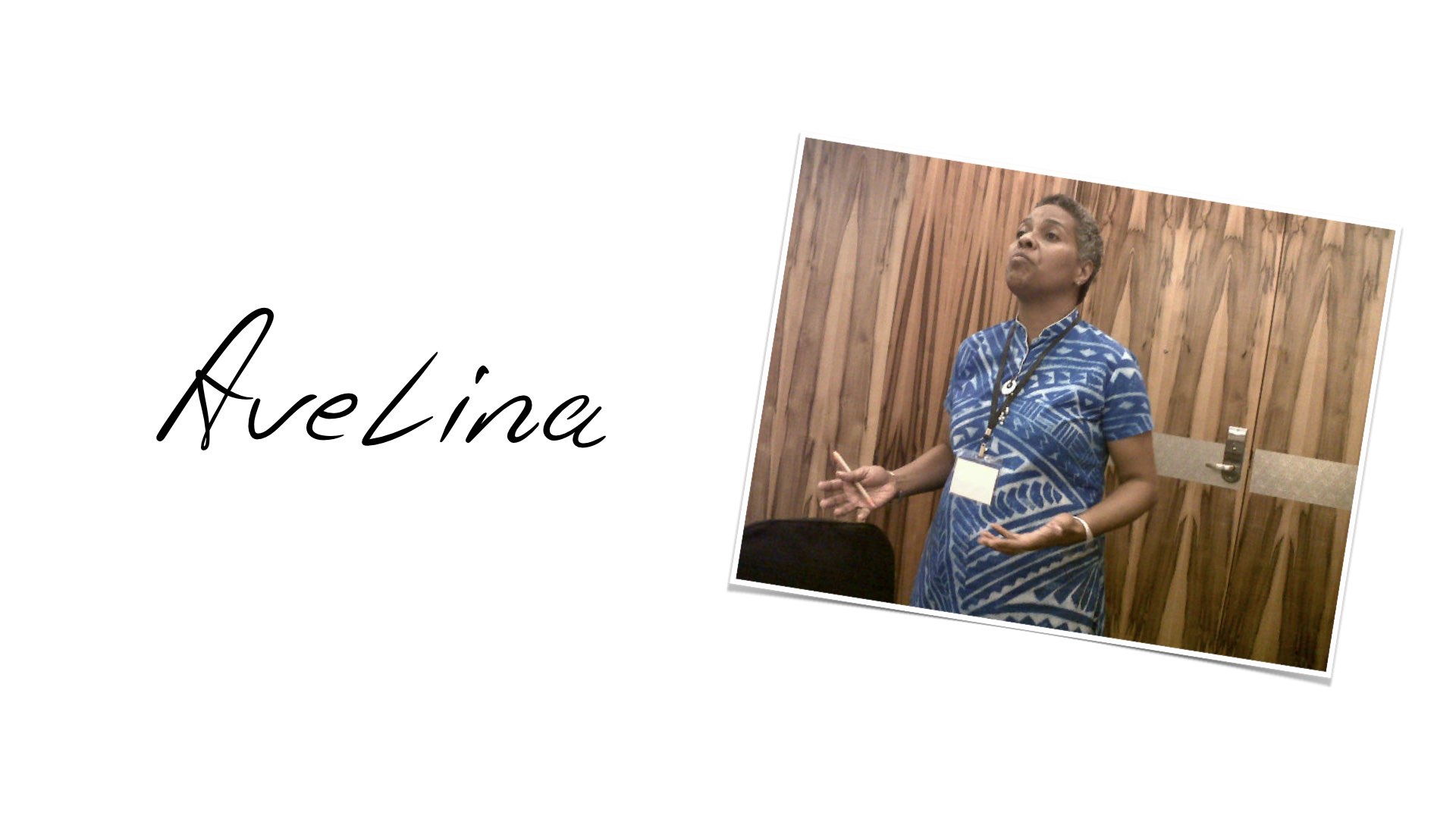
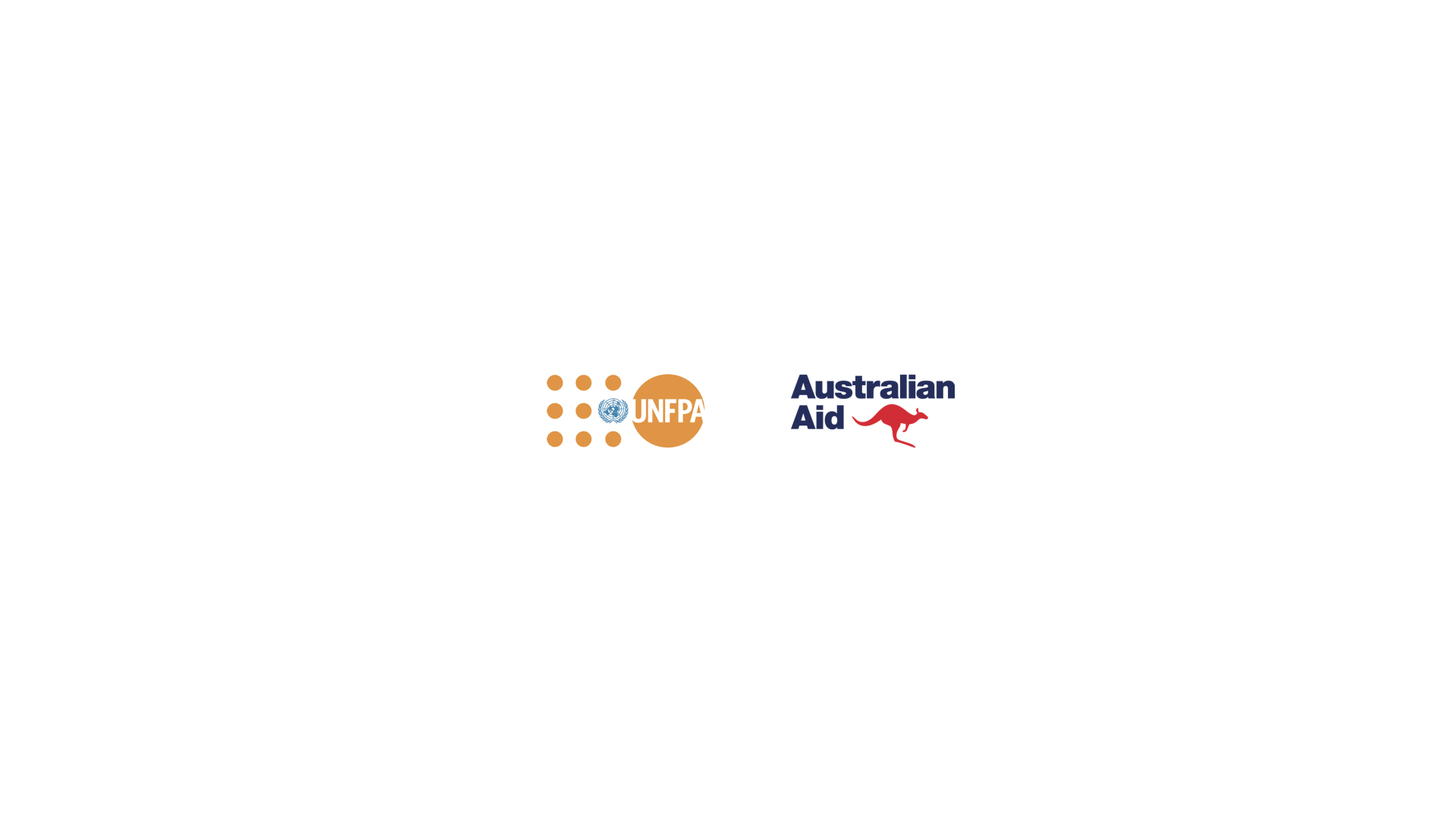
This work was made possible through funding from the Government of Australia, Department of Foreign Affairs and Trade (DFAT) in support of a regional COVID-19 project implemented by UNFPA and partners.

